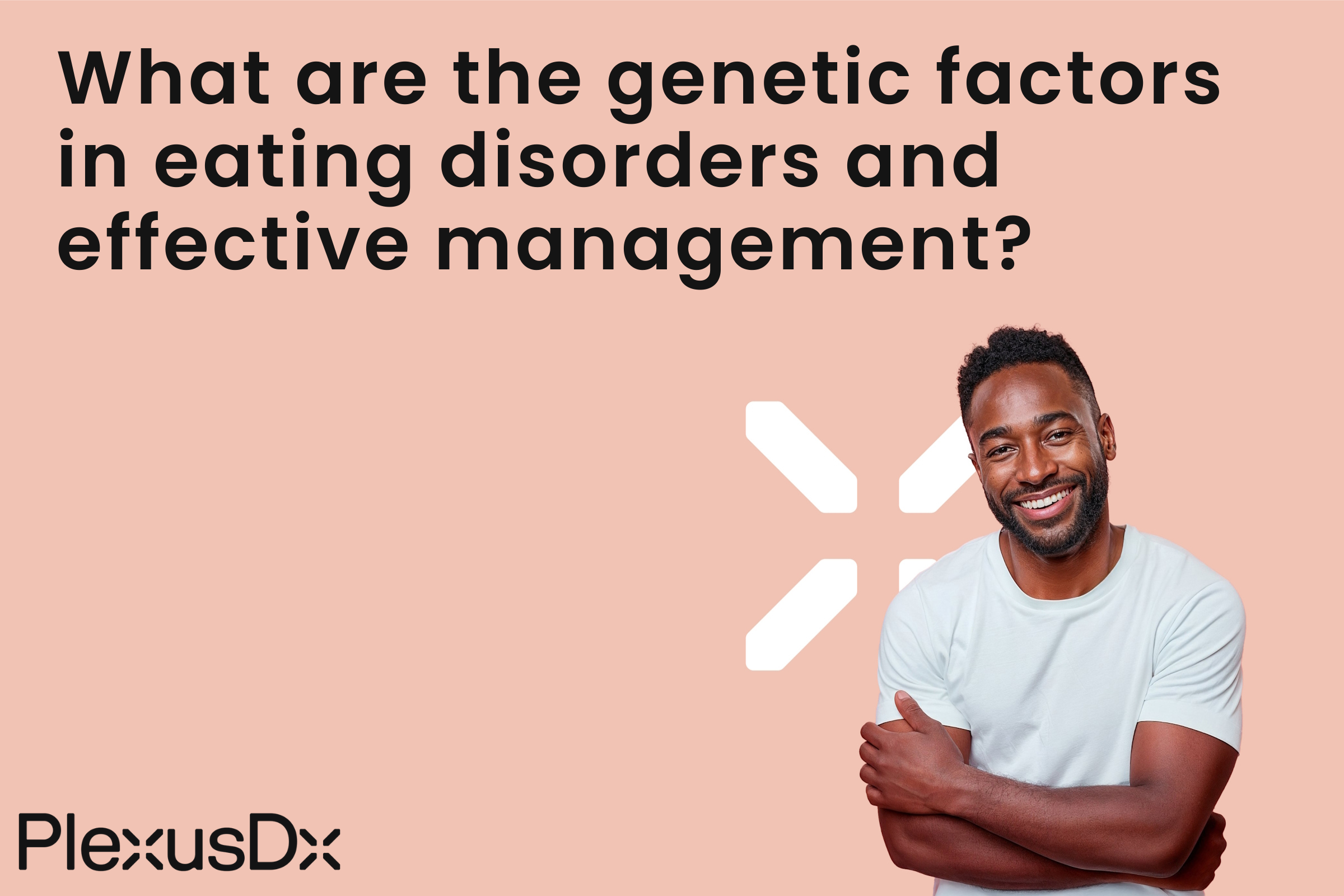Eating Disorders and Genetics: Do media images ever make you feel obligated to achieve what they portray as the perfect body?
Around 45 million Americans face the universal challenge of dieting each year while trying to manage their weight. What proves effective for one person might fail for another because of our distinct genetic structures. Eating disorders like binge eating disorder, bulimia and anorexia emerge when people use eating habits to manage their stress or anxiety levels. These health disorders create physical damage while simultaneously producing serious detrimental effects on mental health. Eating disorders emerge from a multifaceted combination of psychological factors, emotional health statuses, genetic predispositions, and biological components. Researchers are acknowledging genetics as a crucial element for comprehending eating disorders. A particular variant of the HTR2A gene has been associated with a higher risk of developing anorexia. Genetic findings should be complemented with educational interventions on nutrition to establish better food relationships.
Key Takeaways:
- Genetic factors explain up to 80% of the differences in people's risk for developing eating disorders.
- Dieting practices combined with major stressful events alongside other mental health issues serve as risk factors for developing eating disorders.
- One percent of people might develop an eating disorder during their lifetime.
- A high genetic predisposition does not indicate a high overall risk because eating disorders remain rare conditions.
- Lifestyle changes can reduce the genetic risk factors associated with developing eating disorders.
Eating disorders represent mental health conditions which impact how people eat and view their bodies, food consumption patterns and weight management. The three most common types of eating disorders are binge eating disorder, anorexia nervosa, and bulimia nervosa which display unique symptoms and behavioral patterns. People with binge eating disorder eat excessive amounts of food in brief periods which usually results in a sense of uncontrollable behavior. Anorexia nervosa develops from intense weight gain fears which drive people to restrict their calorie intake so severely that they experience significant weight loss. People with bulimia nervosa experience repeated episodes of excessive food intake that lead to purging actions including self-induced vomiting. Dieting along with stressful life events mental health conditions and genetic predispositions act as risk factors for eating disorders. The effects of these disorders extend to both mental health issues such as depression and anxiety and physical health problems including malnutrition and organ damage. Healthcare professionals use talk therapy alongside nutritional counseling and medication to treat eating disorders. Extreme cases of these disorders require hospitalization to simultaneously treat their physical and psychological effects. The genetic foundation of eating disorders reveals key insights that lead to tailored treatment approaches for patients. With the integration of genetic data and lifestyle changes people can actively create a better relationship with both their eating habits and physical health.
PlexusDx Precision Health & Wellness tests reveal your genetic tendencies towards eating disorders through personalized results. Begin your health optimization journey based on your genetic profile by visiting PlexusDx.com or shopping through Amazon and Walmart.

Share:
Why do some get GI infections more frequently?
How do genetics affect DHA levels and why is it crucial for brain and eye health?